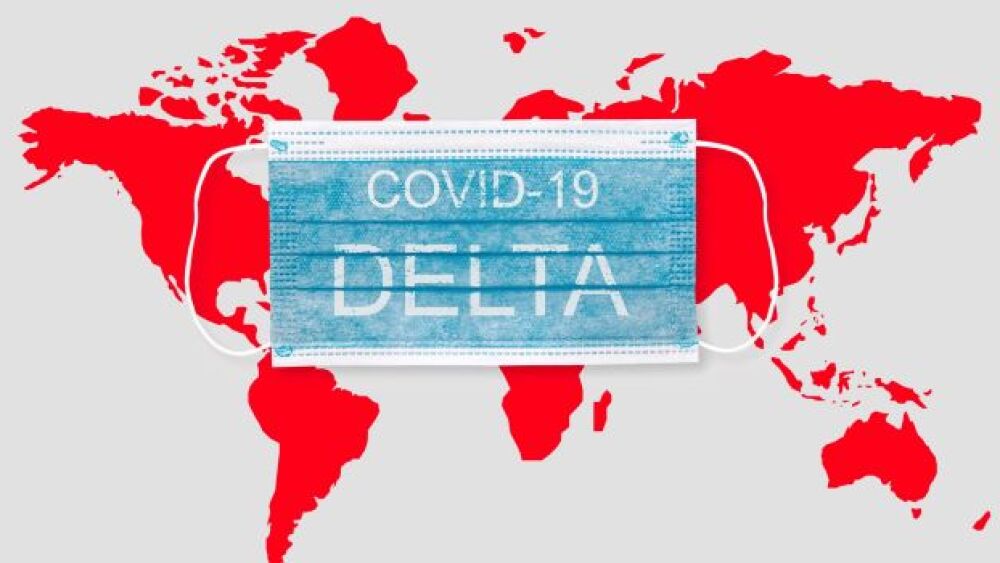Embrapii will finance R$ 1.8 million per company with non-refundable resources, that is, without the need to refund the amount.
The Embrapii Cqmed/Unicamp Unit (Center for Medicinal Chemistry of Open Innovation), accredited to the Brazilian Company for Research and Industrial Innovation (Embrapii), Aché Laboratories and Eurofarma Laboratories unite to make an unprecedented project feasible for the development of new anti-infectious and oncological drugs.
For the first time in Brazil, the research will be based on the so-called open innovation model: all the knowledge acquired will be in the public domain and can be used in the identification and development of patentable molecules after a certain phase of the studies.
The project, with an initial investment of R$ 8.4 million, is aimed at researching new molecules for the development of anti-infective agents, such as antibiotics and anti-parasites, as well as drugs for treating cancer. Each pharmacist will invest R$ 400,000 per year over the next six years. Embrapii will finance R$ 1.8 million per company with non-refundable resources, that is, without the need to refund the amount.
The unprecedented partnership within the Brazilian drug industry will be made official this Monday (29/01), at Unicamp's headquarters in Campinas. Open research follows the line of the successful international model entitled Structural Genomics Consortium (SGC), a public-private, non-profit partnership that develops a baseline study and supports the discovery of new drugs in a non-patent model, allowing unrestricted access to the results.
Throughout the study, this integration allows for an international collaboration with exchanges of experience, knowledge and professionals, in addition to offering a wide range of advantages: risk sharing, saving financial resources and reducing redundancy in research, avoiding unnecessary testing with molecules that have not been previously approved.
The coordinator of the Embrapii - Cqmed unit, Paulo Arruda, explains that the focus of the open model research is on the first steps, where about 95% of the initial molecules for the development of new drugs fail. The participation of companies in the projects in partnership with Cqmed promises to better position the national pharmaceutical industry, making it more competitive and creating an environment for the rise of new partners and for the creation of start-ups that operate in the sector.
"There is no innovation without partnering with industry. And this form of partnership is available to any company willing to commit to open science", says Paulo Arruda.
About Eurofarma Group
The Eurofarma Group is the first Brazilian pharmaceutical multinational with 100% national capital. Recognized by the medical community and society for promoting access to health and quality of life with fair treatment, quality and innovation, it is present in 20 countries. In addition to Brazil, it has its own operations in Argentina, Bolivia, Chile, Colombia, Peru, Uruguay, Ecuador, Venezuela, Paraguay, Central America (Guatemala, Belize, Costa Rica, El Salvador, Honduras, Nicaragua, Panama, Dominican Republic), with offices in Mexico and Mozambique for submitting dossiers.
With 45 years of existence, it stands out in the segments in which it operates: Medical Prescription and Drugs Exempt of Prescription, Generic, Hospital, Bids, Oncology, Veterinary and Services to Third Parties. Its portfolio includes more than 280 products and in 2016, more than 290 million units of medicine were produced. Last year, the Group reached revenues of R$ 3.360 billion, 15.7% higher than the previous year, with Brazil accounting for 85.8% of this amount (R$ 2,882 billion).
The Eurofarma Group has around 6,500 employees in all its units. Eurofarma invests 5% of its net sales in Research & Development, being the national pharmaceutical company that invests more in this area. In 2016, R$ 141 million was invested in R&D. In 2015, the company obtained the approval of the first Latin American biosimilar drug, Fiprima. For more information, visit www.eurofarma.com.br
Facebook: @eurofarma | LinkedIn: @eurofarma | Instagram: @eurofarma_br
About SGC
The Structural Genomics Consortium (SGC) is an international biological and biomedical research group formed by the universities of Oxford, Toronto, Frankfurt, North Carolina, Karolisnka Institute and ten other companies in the global pharmaceutical industry. This partnership format grew and consolidated with the "big-money crisis" due to the expiration of drug patents and the non-reimbursement of these revenues with innovative drugs in the same proportion, among other problems.
About EMBRAPII
The Brazilian Industrial Research and Innovation Company was created in 2013 with the aim of stimulating innovation in Brazilian industry, promoting the interaction between technological research institutions and companies in the industrial sector. Its operating model provides for the financing of up to 1/3 of the total cost of each approved project, with non-reimbursable resources (that is, the industry does not need to return the amount contributed) and the remainder is divided between the Embrapii industries and units.
By sharing project risks with companies, one expects to stimulate the industrial sector to innovate more and with greater technological intensity, so as to enhance the competitive strength of companies both in the domestic market and in the international one. The process is agile and with no bureaucracy. Currently, 42 technological institutions are accredited by the entity.
About CQMED
The Embrapii - Cqmed Unit, located in Unicamp and accredited in July 2017, has competence in the area of biopharmaceuticals and pharmaceuticals, more specifically in the initial phase of the development of new drugs. The specific CQMED has a platform for the development of inhibitory molecules of specific targets related to human diseases. The CQMED is part of the international open innovation consortium named "Structural Genome Consortium" (SGC), which has research laboratories at universities in Oxford (UK), Toronto (CA), North Carolina (USA), Frankfurt (GER) and in the Karolisnka Institute SWA), being supported by development agencies and large global pharmaceutical companies. The CQMED's mission is to pull up pharmaceutical companies to the pre-competitive open innovation consortium, thus creating an innovation hub focused on drug discovery. The open innovation model, in the initial phase of discovering new drugs, allows to speed up the process, as it enables the fast and efficient interaction with the SGC employees, today about 300 researchers around the world, and thus to achieve high quality results more quickly. The innovative initiative of CQMED will certainly contribute to the creation at UNICAMP of an important pole of innovation for the Brazilian pharmaceutical industry.
About Aché Laboratories
Aché is a 100% Brazilian company, with more than 50 years of experience in the pharmaceutical market, and its purpose is to bring more life to people, wherever they may be. It has three industrial complexes: in Guarulhos (SP), São Paulo (SP) and Londrina (PR) and a share in Melcon do Brasil and Bionovis, a Brazilian joint venture dedicated to the research and development of biotechnological drugs. It employs over 4,600 employees and has one of the largest demand and sales generation forces in the pharmaceutical sector in Brazil. To meet the needs of health professionals and consumers, Aché offers a portfolio of 326 brands in 804 prescriptions, generic and MIP (prescription-free) presentations, as well as acting in the dermocosmetics, nutraceutical, probiotics and biological segments. In all, there are 142 therapeutic classes and 25 medical specialties served. Aché's focus in Innovation is to develop products that meet unmet medical needs. Aché's differentiated products are already present in more than 20 countries in the Americas, Africa and Asia. Aché's innovative products are being developed for registration in the most regulated markets in the world.




